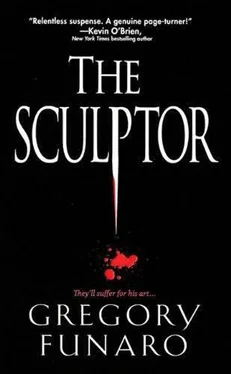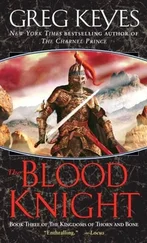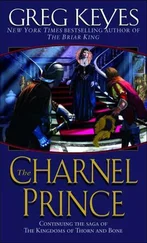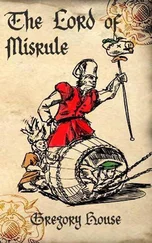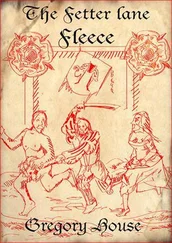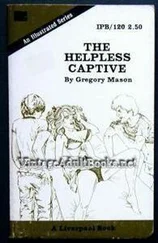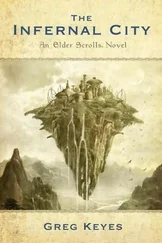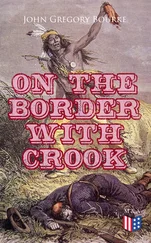Either way, neither option sat well with him.
The only bonus about the whole mess, however, was that the WNRI reporter asked no questions about the inscription itself-did not seem to know exactly why Dr. Catherine Hildebrant had been called to the crime scene other than as an expert consultant. That was good, for that meant the FBI still might be able to do their job without a bunch of media attention on Hildebrant and her book. The media might leave her alone once the initial story blew over. Burrell liked the pretty professor-not because she reminded him of his wife, but because he could tell by the way she examined the bodies of Tommy Campbell and the boy that she was strong. Burrell liked that. Yes, indeed. One could say that Bill Burrell even admired her.
Thomas Campbell, on the other hand, was oblivious to Dr. Catherine Hildebrant-did not even ask Burrell who she was when Meghan O’Neill mentioned her name. In fact, Tommy Campbell’s father seemed to accept the media frenzy in front of the Westerly Police station as simply the next necessary step in the mourning for his son; did not even question Burrell as to how the information about the statue leaked out to the public-information that he himself had known since early that morning. No, his thoughts were only for his son-his son and someone else’s.
“Once they see that statue,” Campbell said, staring at the empty television screen, “the real one, I mean. Once they look it up online and see that the figure behind my son looks like a child, they-the people of Rhode Island at least-they’re going to know it’s that Wenick boy.”
“I know. We’ve got some people at her house now. Just glad they got there before all this about the statue came out.”
Although in the creation of his satyr The Sculptor had significantly altered Michael Wenick’s face-the tiny horns atop his forehead, the pointy ears, the mischievous half grimace of his mouth on the grapes-it had been a Rhode Island state trooper who, upon the FBI’s arrival, had first alerted them to the boy’s possible identity. And after the obligatory search of the missing person databases, after all the pictures and physical descriptions had been compared and analyzed, all signs did indeed point to little Michael Wenick. Burrell knew, however, that they had to be sure before they approached the boy’s mother, and that they would then need a positive ID from her before any information could be presented to the public requesting their assistance.
But how do you tell a mother her son has been sawed in half? How do you tell a mother her child has been given a pair of goat’s legs and been stuffed to look like a devil? What’s even worse, how do you show her? And although Bill Burrell had initially felt guilty for arriving at Dodd’s estate after Thomas and Maggie Campbell had left-after it took two state troopers, in addition to Thomas and his sister-in-law, to get the hysterical mother back home-now, sitting as he was in the den with the man who had in three months become a valued friend, the SAC felt even guiltier for his secret relief at not having had to break the news to the Campbells himself.
No. Even after twenty years with the Bureau, things just never got any easier.
“She’s sleeping now,” whispered a voice from the hall. In the doorway was Maggie Campbell’s twin sister- or a ghost , Burrell thought. A ghost of what Maggie Campbell looked like before her son’s disappearance, before she lost all that weight. He had met the woman before-had mistaken her once for Maggie-but for the life of him could not remember her name.
“Anything else I can do for you, Tom?” she asked. “Before I lay down for a bit?”
“No. Thank you, love. Please, get some rest.”
The ghost smiled wearily, nodded to Burrell, then disappeared back into the shadows outside the den.
“She’s a good girl,” Campbell said. “Been a big help to us from the beginning.”
Tommy Campbell’s father offered nothing more about his sister-in-law-no name to bail Burrell out of his embarrassment for forgetting.
No, the sad-eyed father with the snow white hair just stared silently into the empty television screen as if he were waiting for a commercial to finish-the prop that was his coffee cold and unmoved in his lap as it had been now for almost an hour.
No, Burrell thought. After twenty years with the Bureau it just never gets any fucking easier.
“Here you go, Hildy,” said Janet Polk. “This is the stuff I was telling you about-the stuff my friend over in Anthropology gave me. It smells funky, but it’ll relax you. I promise.”
Cathy held the cup of tea to her nose-a powerful odor reminiscent of curry making her wince.
“Just drink it, wimp.”
Cathy took a sip. It tasted wonderful. “Thank you,” she said.
“First fix is free,” said Dan Polk. “That’s how she rolls. Gets you hooked, then pimps you out on the street like the rest of us bitches.”
Cathy smiled for the first time since she left Sam Markham-had almost called him when the reporters began showing up at her door. But, as usual, it was Janet who came to her rescue; Janet who packed up her things and brought her back to her place across town. Cathy always liked coming to the Polks’ house in Cranston, especially in the evenings-the way the muted lamplight played off the antique furniture, off the leaves of their countless plants and the richly colored wallpaper that enveloped everything. But more than the house itself, more than coming back to the neighborhood where she grew up, Cathy just liked being with the Polks. She instantly became calm and centered around them-ol’ Jan n’ Dan, her best friends and surrogate parents. Dan was a retired real estate broker-an odd match for the brainy Dr. Polk, but somehow they made it work. Married for almost forty years, no children, but one of the happiest couples Cathy had ever met. And not since her mother’s death had Cathy felt so grateful to be with them.
“You’re going to have to talk to them sooner or later,” Janet said, settling herself next to her husband on the sofa. “You know that, right?”
“Yes,” said Cathy.
Janet had insisted on picking Cathy up after seeing the clip of her and Sam Markham on the news; got a little taste of media attention herself when she backed out of Cathy’s driveway and a reporter-the last remaining holdout after Cathy turned off her lights-asked her who she was. “None of your damn business!” she had snapped. And despite the gravity of the situation, Dan Polk could not help but laugh out loud when he saw that clip on CNN later that evening.
As was the case for the majority of Americans that evening, Cathy and the Polks sat glued to their television set as the media once again devoured their scraps of Tommy Campbell. The identity of the second body was released to the public around eight o’clock. Michael Wenick. The boy who had gone missing back in September, who had lived seven streets away from the Polks-only two streets away from the street on which Cathy grew up!
Unlike the rest of Rhode Islanders, Cathy had followed that story only superficially-did not watch or read much news the previous fall; had spent way too much time on her latest journal article. And in the months following her separation from Steve and the disappearance of Tommy Campbell, she had simply forgotten all about the little boy who had vanished from the woods around Blackamore Pond-the very same woods in which her mother forbade her to play as a child.
For that, for forgetting , Cathy felt ashamed.
What Cathy found even more disturbing was that she had not put two and two together when she saw the heinous sculpture in person. Had the figure in the background been only incidental to her? Had she been that overwhelmed by Tommy Campbell, by Bacchus, by the star of the exhibit?
Читать дальше
